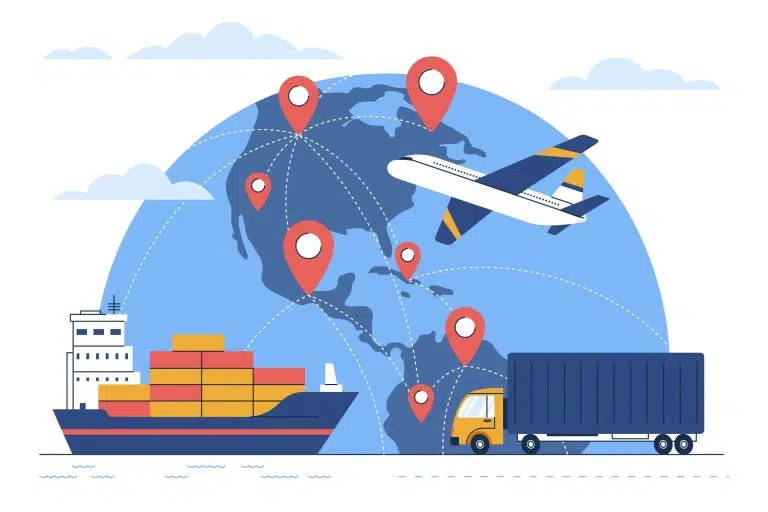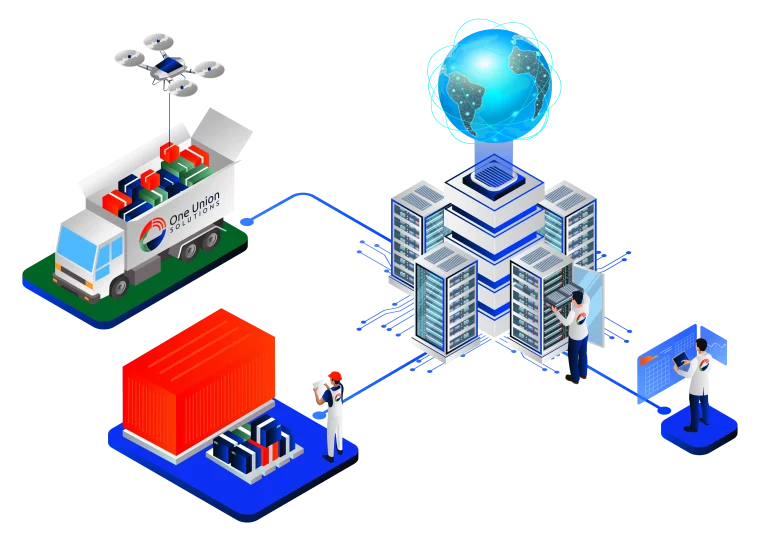The History of Warehousing in Georgia
Georgia has a long history of warehousing extending back to its days as a trading center. Throughout Georgia’s history, warehouses were critical in facilitating trade and storing commodities. Mechanization and enhanced storage techniques have progressed over the years, and Georgia now has a sophisticated and efficient warehousing industry that services industries ranging from e-commerce to manufacturing.
Framework for Regulation of Warehousing Services
The warehousing business in Georgia operates within a well-defined legislative framework to ensure the security and efficiency of storage and distribution operations. This regulatory framework’s primary features include:
Customs and taxation: Bonded warehouses help firms by postponing customs fees and taxes until imported products are cleared, allowing them to improve cash flow and streamline customs procedures.
Warehouses in Georgia are subject to stringent safety and security rules. Equipment are safeguarded by surveillance systems, fire prevention measures, and 24-hour security crews.
Labor laws in Georgia protect warehouse employees’ rights by addressing issues such as overtime, safety regulations, and working conditions.
Georgia Warehouse Industry Trends
Georgia’s storage sector is evolving in response to changing consumer needs and technical advances. Among the notable trends influencing the market are:
E-business Fulfillment: As online shopping has grown in popularity, e-commerce fulfillment centers have emerged as a key sector within the warehousing industry. These facilities specialize in swift order picking, packing, and shipping to guarantee that online clients receive their orders as soon as possible.
Automation and robots: Many Georgia warehouses are implementing automation and robotics to increase production and cut labor expenses. AGVs, robotic pickers, and conveyor systems are becoming increasingly common in modern warehouses.
Initiatives for Sustainability: Environmental sustainability is becoming increasingly important in the warehousing industry. Many Georgia warehouses adopt environmentally friendly practices such as sustainable packaging and energy-efficient lighting.
Data Analytics: Data analytics tools are being utilized to improve supply chain and inventory management procedures. Real-time data on inventory levels, demand trends, and order fulfillment assist firms in making educated decisions.
The Impact of Technology on Modern Warehousing
Technology is crucial in shaping Georgia’s storage services. Among the most significant technological advancements are:
Warehouse Management Systems (WMS): WMS software streamlines warehouse operations and provides real-time data on order status and inventory levels by optimizing inventory allocation, order picking, and shipping processes.
Internet of Things (IoT): IoT sensors monitor warehouse variables such as humidity and temperature, ensuring the safe storage of delicate products such as medical equipment.
Blockchain technology is being investigated for its potential to improve supply chain traceability and transparency, promoting trust among supply chain actors and assisting in product authenticity verification.
Artificial Intelligence (AI): Algorithms driven by AI are used for predictive maintenance and demand forecasting, increasing warehouse productivity and reducing downtime.
Opportunities and Difficulties
While Georgia’s warehouse sector has made tremendous progress, there are still obstacles to overcome:
Labor Scarcity: Finding skilled warehouse workers can be difficult, especially as automation becomes more common. Concerns concerning skilled labor recruitment, training, and retention remain.
Infrastructure: In order to support the efficient flow of commodities to and from warehouses, it is necessary to maintain investing in transportation infrastructure such as road networks and ports.
regulation Compliance: To ensure industry compliance, ongoing regulation changes, particularly those pertaining to environmental compliance and data protection, are essential.
Despite these obstacles, Georgia’s warehousing business has several prospects for expansion. Georgia is an appealing site for logistics and warehousing enterprises due to its strategic location as a gateway to the Southeastern United States and its business-friendly atmosphere. One Union Solutions is your ally in overcoming these obstacles.
Warehousing’s Importance in Efficient Logistics
Warehousing is an essential component of any functional logistics system in Georgia. It improves inventory management, product availability, and customer happiness. By lowering expenses and enhancing operational efficiency, effective storage can have a substantial impact on a company’s bottom line.
Warehousing’s Role in Successful Logistics
Warehousing plays a major role in Georgia for the following reasons:
Improving Inventory Management: Effective warehousing ensures that products are available when and where they are required, reducing stockouts and overstocking.
Timely Delivery: Georgia’s warehouses allow for quick delivery to clients and end-users, increasing customer satisfaction and sales.
Cost-effectiveness: Well-managed warehouses minimize logistical costs and improve market adaptability, resulting in higher profitability.
Georgian Warehouses’ Key Characteristics
Modern warehouses in Georgia include a variety of facilities to help businesses:
Climate-Controlled Storage: This is critical for protecting the quality and safety of commodities, particularly those that are temperature-sensitive.
Warehouses use strong security measures such as cameras, alarms, sprinklers, and 24-hour security guards.
Customized Storage Options: Warehousing services give flexibility through bespoke storage solutions that may be scaled to meet changing handling requirements, storage needs, and duration requirements.
Value-added Services: To simplify supply chain management, many warehouses in Georgia provide extra services such as kitting, assembling, labeling, quality control inspections, and repackaging.
There are specialized warehouse facilities available.
Businesses in Georgia can choose from a variety of warehouses to fulfill their individual needs:
Private Warehouses: Private warehouses that are owned and operated by enterprises for order fulfillment, distribution, and warehousing.
Public Warehouses: Rentable commercial storage facilities.
Bonded Warehouses: Facilities that can store imported products while they wait for customs clearance.
Distribution Warehouses: Points of consolidation for bulk commodities in the supply chain.
Why Choose Us?
One Union Solutions is a well-known warehousing company in Georgia. We offer the highest customs standards, as well as great service and cutting-edge solutions. On-site inspections, 24-hour electronic assistance, and a variety of manufacturing and warehousing choices tailored to your individual needs are all part of our complete services.


